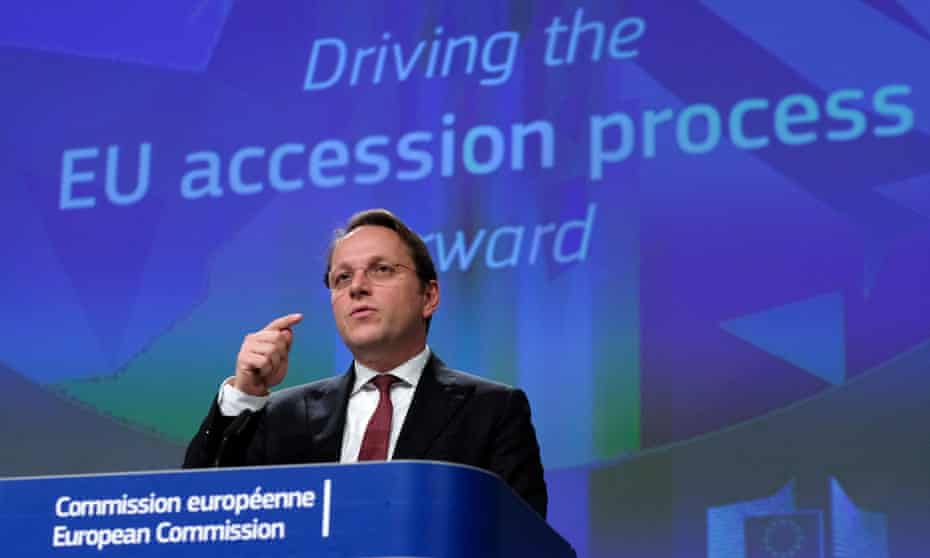Less than a week after the departure of the UK, Brussels is seeking to breathe new life into the enlargement of the EU, unveiling an overhaul of the process for joining the bloc.
The long-awaited document from the European commission was published less than a week after the first ever departure of a big country. One main purpose is to keep alive the EU ambition for six western Balkan nations, with a combined population of 17.9 million people. No country has joined the EU since Croatia in 2013, but Albania, Bosnia and Herzegovina, Kosovo, Montenegro, North Macedonia, and Serbia hope to eventually.
The paper is also intended to assuage doubts about further EU expansion among member states wearied by the eurozone crisis as well as backsliding on the rule of law and persistent corruption in some EU countries. It draws heavily on a plan put forward by Emmanuel Macron, who last year vetoed North Macedonia’s hopes of starting membership talks, causing despair among politicians in the region. The French president also joined Denmark and the Netherlands in blocking Albania.
Good message to our #WesternBalkans friends about EU enlargement process: Today the @EU_Commission proposes a credible & dynamic plan paving the way for opening accession talks with North Macedonia & Albania (🇲🇰🇦🇱). EU enlargement is a WIN-WIN situation. #geopoliticalcommission
— Ursula von der Leyen (@vonderleyen) February 5, 2020
Potential EU member states have to complete 35 chapters to match EU standards in numerous areas, from a functioning public administration to fisheries to financial regulation. The new proposals mean that all countries will be required to complete fundamental reforms on democratic institutions and the rule of law before attempting more technical reforms.
France complained that the EU enlargement process lacked credibility and said applicants should be required to repeat negotiating “chapters” if they later unpicked key reforms, an idea the commission has adopted.
EU enlargement had to be “more credible” for EU member states and those seeking to join, the EU enlargement commissioner, Olivér Várhelyi, told journalists. “It has to be more predictable, more dynamic and more political,” he said, adding that “very many member states” had raised concerns in private, beyond countries that had voiced opposition in public.
If countries seeking to join the EU could meet the criteria “then it can actually go quicker and in a much more meaningful way”.
The new criteria will not apply to Serbia and Montenegro, which have embarked on EU accession under old rules. Várhelyi said it was “their choice” to opt into the new system, adding that he could see grounds to do so.
The former Romanian prime minister Dacian Cioloș, who sits with Macron’s MEPs in the European parliament, described the plans as a good step forward, adding that his group “fully supports” new impetus to EU enlargement.
“The next step, after agreeing on the new methodology, should be the opening of accession negotiations with North Macedonia and Albania,” he said.
